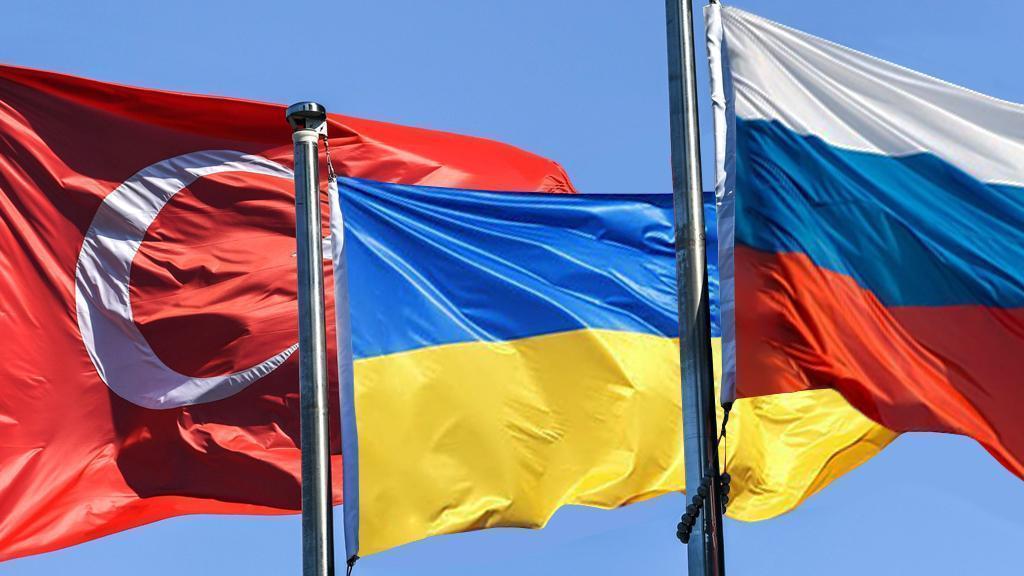BY ZEYNEP GURCANLI
It is a rule in international relations: when a country falls from power attempts to weaken it come, further, from all sides. This is what is currently happening to Russia.
Russian Leader Vladimir Putin’s miscalculated attempt to invade Ukraine has brought about the erosion of “Russian influence” in various parts of the world. For example, at the Shanghai Cooperation Organization summit, leaders of the two most populated and influential countries in the world, China and India, gave a clear message to Russian leader Putin: “Stop the war now.” This shows that Moscow could not convince even the countries close to it of a possible Russian victory in Ukraine.
Another clear example of Russia’s weakening is in the Caucasus. The conflict that started between Azerbaijan and Armenia in Nagorno-Karabakh resulted in a ceasefire overseen by Russia in 2020. This truce, which was in a delicate balance, broke when Russia faltered in the Ukraine war.
Interestingly, the USA mobilized in this region after the ceasefire. US Secretary of State Blinken said, after meeting with his Turkish counterpart Mevlüt Çavuşoğlu in New York, that he had “discussed US efforts to solve the problem in the South Caucasus” with Çavuşoğlu. However, in the Azerbaijan-Armenia war in 2020, when Moscow oversaw mediation, the influence of the US was not visible.
The visit by US House of Representatives Speaker Nancy Pelosi to Armenia should be read from this perspective. The Washington administration has obviously mobilized itself to break down the Russian influence in the Caucasus and to foment American influence.
These developments may have critical consequences for Turkey, which is another “playmaker” country in the Caucasus. What stance will Ankara will take against the US’s Caucasian move? This will affect both Turkish-American relations and Turkish-Russian relations.
PUTIN’S “PARTIAL MOBILIZATION”
Of course, we must also include the partial mobilization announcement by Russian president Vladimir Putin.
Putin’s attempt to implement the strategy he successfully oversaw in Crimea in the Donbas, and to bring the Donetsk, Luhansk, Kherson, and Zaporizhia regions under the control of Russian forces, through a referendum does not seem to be going to plan.
If things were going the way Moscow wanted in Ukraine, would Putin call in 300,000 reservists? It should also be emphasized that Putin also has now called the Ukraine war “a war between Russia and the West,” rather than a military operation. The Russian leader even felt the need to play the nuclear weapons card, saying that his country could “use any means at its disposal” in this war. Putin’s implication that he may resort to nuclear weapons, which means mutual annihilation and should be seen as a last resort, is a very dangerous escalation, but also a sign of failure.
US MOVES IN CYPRUS
We can see Putin’s experience in Russia as a different version of that experienced by the AK Party government in Turkey. The use of foreign policy to gather votes at home, the spurious speeches, and the exaggerated statements that have abandoned diplomacy have all made Turkey a “lonely” country on a global scale.
However, this is not a positive thing, as some AK Party officials describe it. As a matter of fact, the AK Party government have seen the worthlessness of loneliness, and has been making moves to correct it. Reconciliation steps with Israel, Arab countries, and Syria should be viewed from this perspective.
However, no amount of steps forward can reverse the damage of the steps you took back.
From this point of view, it is possible to say that the Greek government has benefited the most from the foreign policy mistakes made by the AK Party government, especially in recent years. At a time when Turkey was alone in a diplomatic sense, Greece managed to garner the support not only of the European Union, but also the Washington administration, in matters in the Aegean.
Loneliness also negatively affected Turkey’s defense. While Turkey was excluded from the much-needed 5th generation fighter jet project, it now has to request aircraft from the USA, even for 4th generation aircraft. Athens received the modernization of the F-16 warplanes, which Turkey has “requested” but still not received from the US. Two modernized F-16 aircraft were delivered to Greece last week. The Greeks, who bought a Rafael plane from France, are now after the F-35 fighter jets. It look like they’ll get that too.
This means that air superiority in the Aegean has changed in favor of Greece. And that’s not all. Last week, the US signed an unfortunate declaration for Turkey, this time regarding the Greek part of Cyprus. The American arms embargo against the Greek Cypriot Administration was officially lifted.
A symbolic photograph of Turkey’s loneliness emerged during President Erdogan’s stroll in Central Park. Erdogan was in New York, but all the world leaders he wanted to meet were in London for Queen Elizabeth’s funeral.
Whether symbolic or diplomatic, everything experienced by Turkey as of late shows that Turkey lies alone in the international arena.










